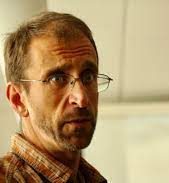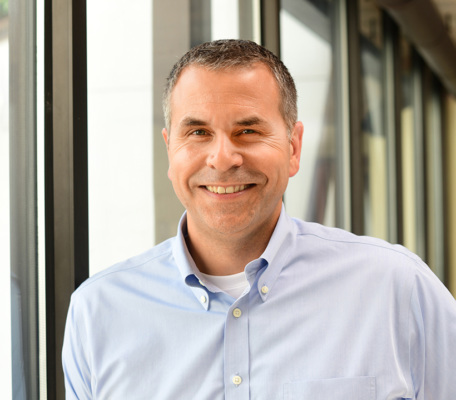A Year After Jan. 6 Insurrection, Teachers Wary of Anti-CRT Laws Careful How They Broach Capitol Attack
[ad_1]
Sign up here for The 74’s day by day publication. Donate here to help The 74’s impartial journalism.
Lecturers across the nation, fearful of recent state legal guidelines governing how they focus on race and different delicate matters, are utilizing the Socratic technique — participating college students in open-ended question-and-answer periods — to handle the Jan. 6 rebellion and the Massive Lie that fueled the lethal riot one yr in the past.
As a substitute of telling college students what occurred on the Capitol, educators are asking them to conduct their very own investigations utilizing credible information sources and significant pondering to form their perceptions.
A part of the hassle displays academics’ want to enhance information literacy. And a part of it displays their apprehension about anti-critical race idea laws handed in a number of states in 2020 taking purpose on the instructing of systemic racism.
Whereas riot organizers mentioned they had been protesting an illegitimate election, President Biden and others have referred to as out white supremacy — a subject that would run afoul of anti-CRT legal guidelines — as central to the assault.
Lecturers, historians, information literacy and civil rights advocates say college students should be taught the reality concerning the day’s occasions however that it is a notably tough time to handle the subject because the nation stays deeply divided on social and political points. Many conservatives across the nation have redirected their outrage round these issues to their native college boards, demanding, in typically raucous conferences, larger management of what and the way youngsters are taught.
Brian Winkel, an English and journalism instructor in Cedar Falls, Iowa, remains to be navigating the anti-CRT regulation in his state, saying the wording “is imprecise sufficient to make it scary.” If it was meant to have a chilling impact on the instructing of race-related matters, it’s working, he mentioned.
“It’s model new and I do know some individuals are questioning issues they will discuss, together with the Japanese People detained in WWII, the remedy of Native People and what occurred in Tulsa,” Winkel mentioned, referring to the 1921 race bloodbath. “It’s very exhausting to bounce round these matters.”
He and his college students had been already discussing the validity of the 2020 election when the rebellion occurred final yr: Winkel had them study arguments on each side and look carefully at their sources.
“If you get proper all the way down to it, it was the Massive Lie,” he mentioned. “I didn’t have anybody who didn’t see that, as I bear in mind: I believe youngsters had been capable of see whenever you constructed out the proof that there was nothing to face on.”
This yr, he’ll pose a barely totally different query enjoying off recent news polls asking college students whether or not the rebellion was peaceable or violent: They’ll must share their opinion primarily based on two credible sources.
Regardless of brutal assaults on Capitol Police amongst quite a few different acts and threats caught on digicam, simply 4 in 10 Republicans referred to as the rebellion “very violent” or “extraordinarily violent” in keeping with The Related Press-NORC Heart for Public Affairs Analysis outcomes launched Jan. 4.
Winkel mentioned he’s cautious to not share his personal views on these points.

“I attempt to get youngsters to be clueless about what aspect of the political line I’m on by the point they’re performed with this class,” he mentioned.
The instructor mentioned he hasn’t averted controversial points to stave criticism from mother and father, however stays involved and confused about one space.
“Race is a well timed subject on this nation,” he mentioned. “We now have had heaps and plenty of horrible incidents to deconstruct. However in relation to institutional racism, I’m nonetheless making an attempt to wrap my thoughts round what could be mentioned. So, I’ve performed it protected. The very last thing we wish to do with this class is to indoctrinate.”
Peter Adams is senior vice chairman of training for the News Literacy Project, a Washington D.C.-based nonpartisan nationwide training nonprofit aimed toward instructing college students to be savvy and energetic information customers.
Adams mentioned academics are in a tricky place in relation to the rebellion: Even mainstream information protection is taken into account off-limits in some circles. His group gives educators with many sources to assist them tackle these points, however “they’re hesitant to deliver them into the classroom for worry of sparking controversy and mum or dad backlash in the event that they deal with a rumor that must be a settled matter of reality,” together with correct COVID-19 precautions and the legitimacy of the 2020 election, he mentioned.

“Usually, my recommendation to educators is to method the subject of misinformation and falsehoods from the concept mis- and dis- data is essentially exploitative: They play on a given viewers’s deepest beliefs and values and exploit them for political achieve,” Adams mentioned. “For those who had been a supporter of President Trump in 2020, falsehoods concerning the election are looking for to take advantage of that and use it towards you and never assist your politics, causes, beliefs or values — however to weaponize them.”
Monita Bell, affiliate director of the Southern Poverty Law Center’s Learning for Justice program, which goals to be a catalyst for racial justice within the South and past, mentioned college students ought to know the occasions of Jan. 6 aren’t anomalous.
“The progress of our nation isn’t linear,” she mentioned. “In actual fact, it’s usually recursive. Jan. 6 might be the latest instance of the backlash that always comes from progress, and making certain college students perceive this not solely provides them a greater grounding of our historical past, but additionally their place in it.”
Anton Schulzki, social research instructor at Normal William J. Palmer Excessive College in Colorado Springs, Colorado, started a one-year time period as president of the National Council for the Social Studies on July 1. He and his class — the varsity was principally distant final winter — had been learning civil rights-themed music when the rebellion occurred. Schulzki tossed his lesson plan for the day and shared his pc display screen together with his college students as they tried to make sense of what was unfolding.
“We had been simply shaking our heads, asking, ‘What the heck is happening?’” he recalled. “At that time, we didn’t know — and we’re nonetheless discovering out.”
Schulzki plans to ask his college students the place they had been when these occasions unfolded a yr in the past and what they make of them at the moment. Whereas he needs all academics may focus on these points freely, he’s effectively conscious of those that plan to bypass the subject for worry they’ll lose their jobs in the event that they focus on such controversial issues. An skilled educator with a strong monitor report, he’s assured in tackling powerful topics however understands not all academics really feel the identical.
“I can do sure issues in comparison with a first-year instructor in a small city …the place everyone is aware of everyone,” he mentioned. “It varies throughout the nation.”
James Grossman is the chief director of the American Historical Association, a company based in 1884 and included by Congress 5 years later for the promotion of historic research. He mentioned his group is at present crafting sources for these academics struggling to show these matters in anti-CRT states.
Grossman helps what educators say they’re already doing, which he described as working from proof to “assist college students see how there could be totally different angles of imaginative and prescient on such points.”
However, he mentioned, that doesn’t imply all narratives are equal.
“A part of the aim of historical past training is to assist college students be taught to learn proof generated from numerous sources and piece collectively tales which might be in step with that proof and reply helpful and significant questions,” he mentioned, including it’s crucial for them to grasp what occurred Jan. 6.
If academics don’t focus on controversial historic points, he mentioned, college students received’t be taught all they should know to be constructive and accountable members of their communities.
“This contains all types of communities, together with workplaces and households, in addition to geographically and politically outlined entities,” he mentioned. “Why would we would like a inhabitants of people that don’t know our historical past? Why would we wish to conceal helpful information? If academics again away from these matters we’re liable to shedding the knowledgeable citizenry upon which democracy relies upon.”
[ad_2]
Source link